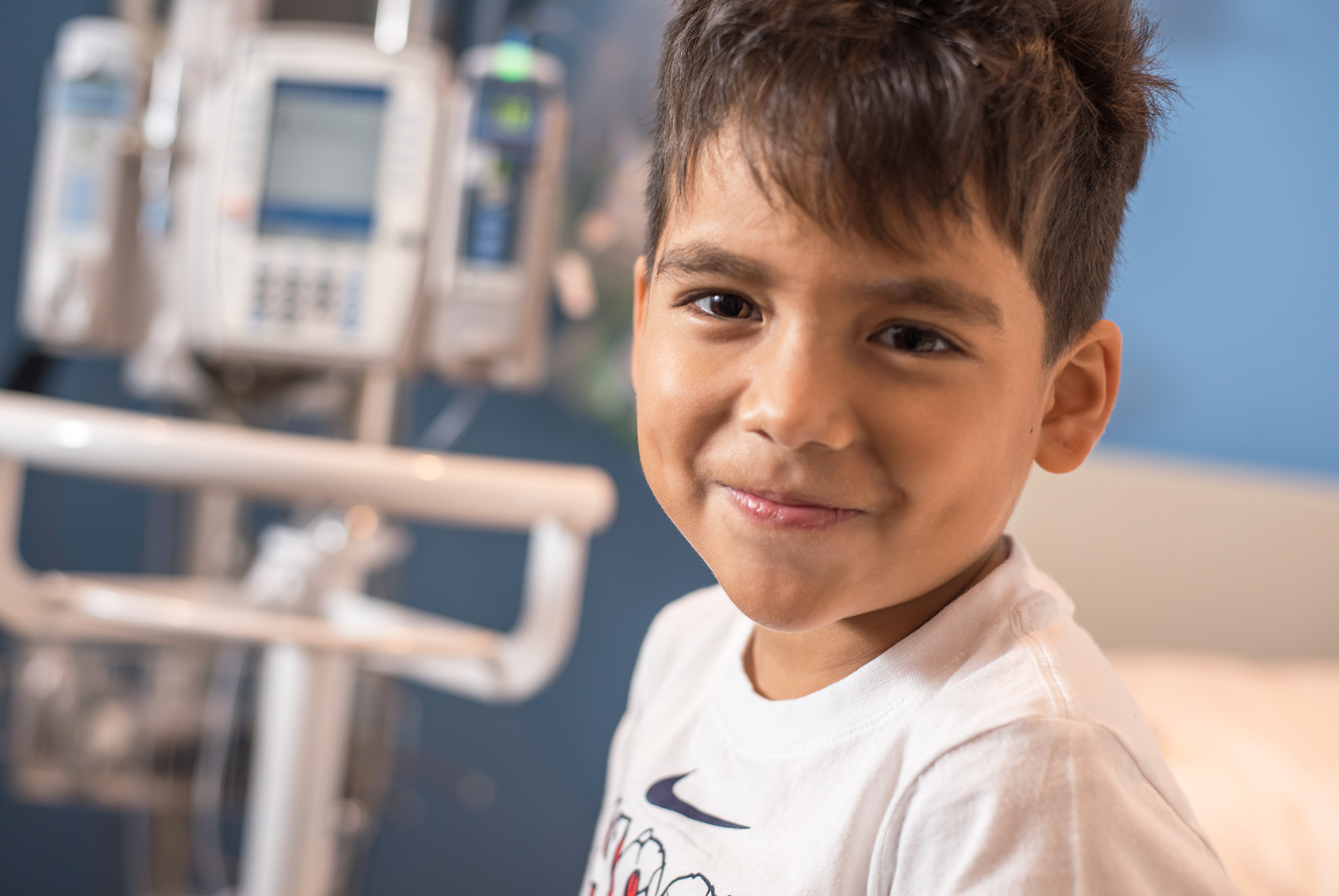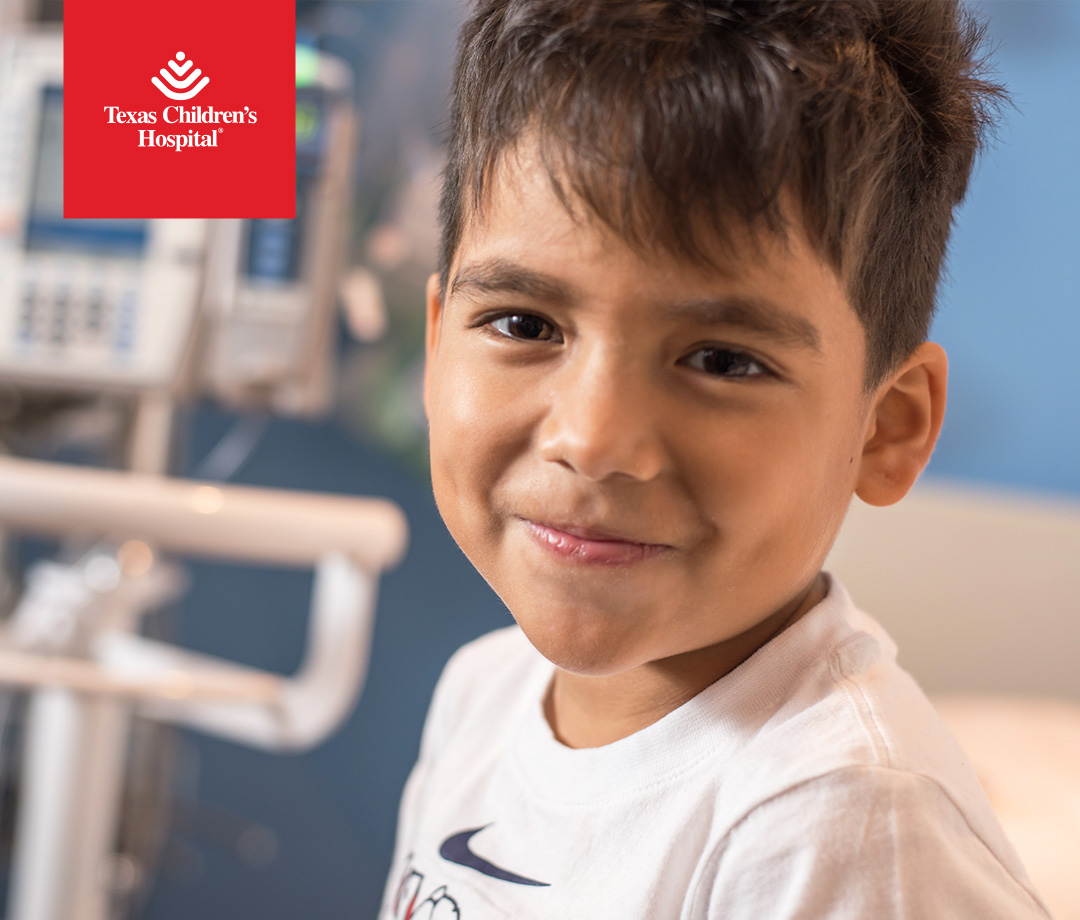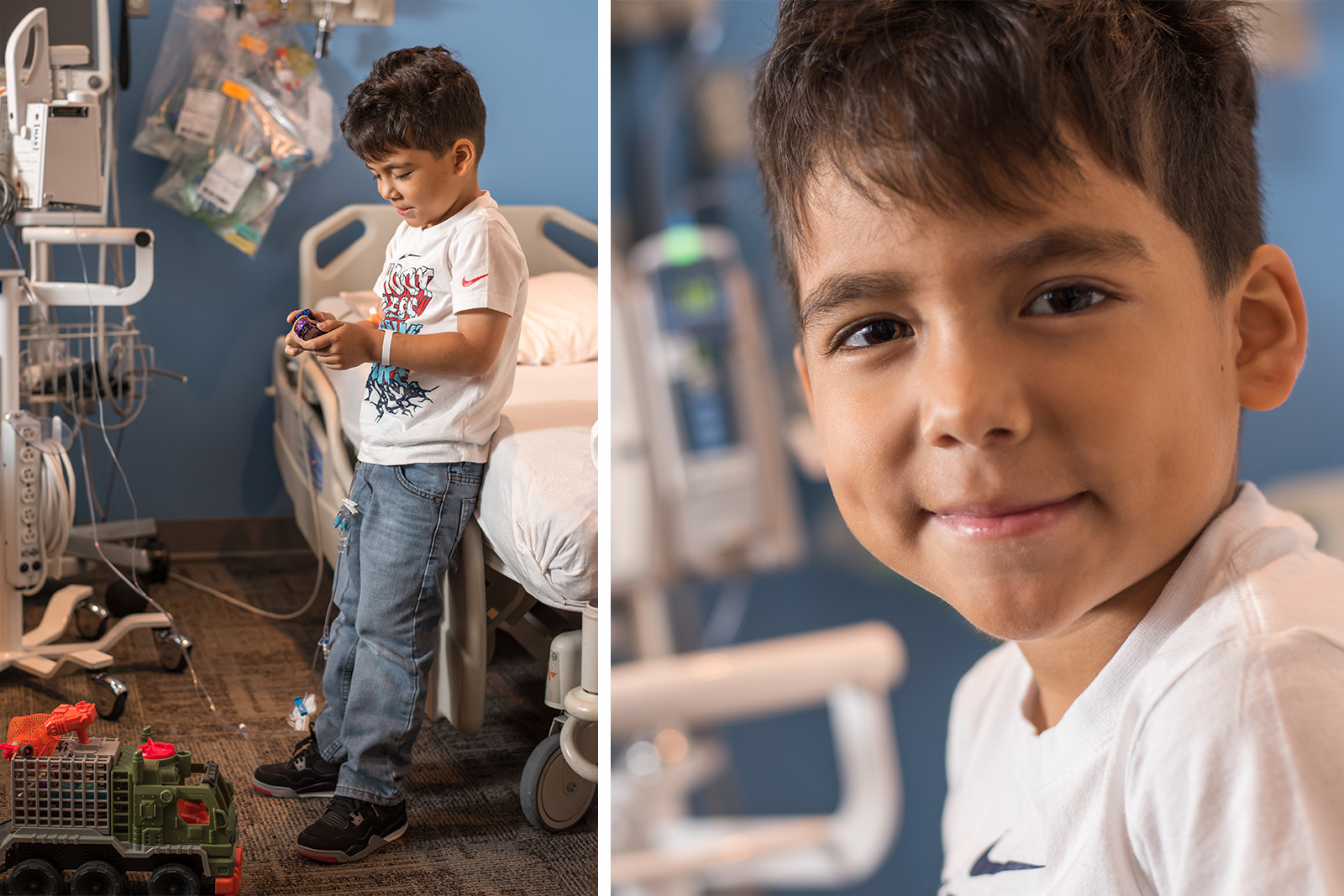

Growing Up with ALL
Patient's Name: Jayden V.
Parent's Name: Maria V.
Home Town: Houston, TX
Current Age: 6
Date of Diagnosis: Jan. 25, 2017 (3 yrs. old)
Diagnosis: Acute Lymphoblastic Leukemia
How did Jayden get diagnosed?
It started out with him getting a nosebleed. For like an hour, it didn’t stop. That was the first sign. We took him to the doctor and they told us his blood counts were low and to go to the ER. That’s when they told us he had leukemia and would require 3 and a half years of active chemo treatment.
What’s his treatment like now, two years in?
We are on his fourth phase, the maintenance, and that means we come here once a month and he takes pills every day. He has quarterly spinal taps and every Friday he has a different type of chemo. There’s only ten more months, he’s come a long way. He’s back in school now, and it’s a relief to have things back to normal in that sense.
We’re in the Urgent Care Bay of the outpatient clinic right now because he had a fever. With cancer, you have to worry about every little fever. When his ANC number is low, he tends to get fevers, and they need to get a culture to make sure he’s okay. You never know when he’s going to be sick. You have to be ready all the time. We don’t even usually need a thermometer to know, we can tell just from his facial expression.
That sounds stressful, how do you guys handle it?With lots of love, patience and understanding of what he has to go through. You’ve got to have a lot of patience. It affects everybody, the kids at home have to deal with us not being there for them sometimes. Being here, both parents, together, is important for us. We’re helping each other. That’s what I would recommend to anyone going through this. If at all possible, be here together. It’s really hard when one person takes on all the caregiver responsibilities. They have to keep track of it all, he needs to do this, we need to do that, we’re watching out for this. Share the mental load of it, it really helps.
 How has Jayden handled treatment?
How has Jayden handled treatment?
It wasn’t easy at first, whenever they would access him, one of us would be holding his arms, the other one holding his legs because he didn’t like it one bit. He’s crying and I’m crying because I have to hold him down. It was so hard. But he’s gotten used to it now, he can just lie down and let them access the port, and he swallows his pills like an adult. He understands the difference between the ER, the regular doctor, the cancer doctor, his pills. He knows so much – too much – medical stuff for a boy his age.
When he’s on his steroid medication, that’s hard for his siblings. They’re older, so they understand, but it’s hard. We’re all walking around on eggshells whenever he’s on them. He just gets really emotional, really angry, has no patience.
So as you get closer to the end of treatment, how’s your outlook?We feel fortunate that he has this type of cancer. There are worse types, ones that tend to come back. After the five year mark, if it hasn’t come back, it doesn’t come back.
Our journey has been fine. So far. Until maybe now. We just noticed his ANC numbers have been going up and down, and there might be a little concern about what’s causing it. They’re going to want to look at his bone marrow, to see if he has scar tissue from the chemo. Last week, when we found this out, I was like, ‘Oh, great, just when I can see the end, I’m starting to get worried now.’ My husband’s like, ‘Well worrying isn’t going to help, all you can do is pray.’ And of course, he’s right.
I can’t wait until we can hit that five year mark and don’t have to worry about this anymore.
Back to home Next story